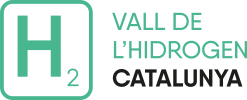A consortium led by Repsol together with Enagás, Iqoxe, and Messer presented in Tarragona (Catalonia) the state of the renewable hydrogen production project to be held in the Petrochemical Center of Tarragona, framed in the Hydrogen Valley of Catalonia. The four entities collaborate in the design and construction of the largest electrolyzer in Spain, with a capacity of 150 MW in its first phase and whose commissioning is expected in 2025.
The companies foresee an investment of 230 million euros in the project, with an additional 80 million for electrical storage facilities. Currently, the project has passed the conceptual engineering stage and is about to begin the detailed engineering phase. In a second phase, which would start in 2027, the production capacity of renewable hydrogen would increase up to 1 GW. The electrolyzer will preferably use local renewable energy and have the best technologies to minimize water consumption to produce renewable hydrogen and oxygen.
On the one hand, renewable hydrogen will be used as a raw material in the local industry as an industrial fuel, it will have uses in mobility and will be injected into the natural gas transport network. On the other hand, the renewable oxygen will also have uses in the surrounding industry and will be distributed thanks to the gas pipeline in the Polígono Petroquímico, owned by Messer. For Iqoxe, it will mean achieving its objective of reducing its CO2 emissions, as well as taking advantage of this oxygen to produce ethylene oxide. This large-scale electrolyzer represents a technological milestone since thanks to its size it is possible to reduce the costs associated with producing renewable hydrogen through electrolysis.
The project, which is part of the Hydrogen Valley of Catalonia, the Ebro Hydrogen Corridor, and the SHYNE (Spanish Hydrogen Network) consortium, is a catalyzer to create clusters around hydrogen. The objective is to match the production capacity to the needs of the adjacent and newly created industry, as well as to diversify the uses of renewable hydrogen, so that the ecosystem is as efficient as possible, both in terms of production and transformation and logistics costs. Likewise, the production of this renewable hydrogen will mean a decrease in the consumption of natural gas used by the industry, which also contributes to the achievement of the objective set by the European Commission within the RePower EU strategy to reduce external dependence on fossil fuels.
Repsol is currently the main producer and consumer of hydrogen in Spain. The company has an ambitious roadmap to lead the renewable hydrogen market in the Iberian Peninsula and play a leading role in Europe: it aims to reach 552 MW of installed capacity in 2025 and 1.9 GW in 2030, with investments exceeding 2,500 million euros in projects along the entire hydrogen value chain until 2030. For its part, Enagás has a portfolio of more than 50 projects in Spain in the field of renewable gases and decarbonization, which represents one of the largest European platforms for renewable gas projects.
